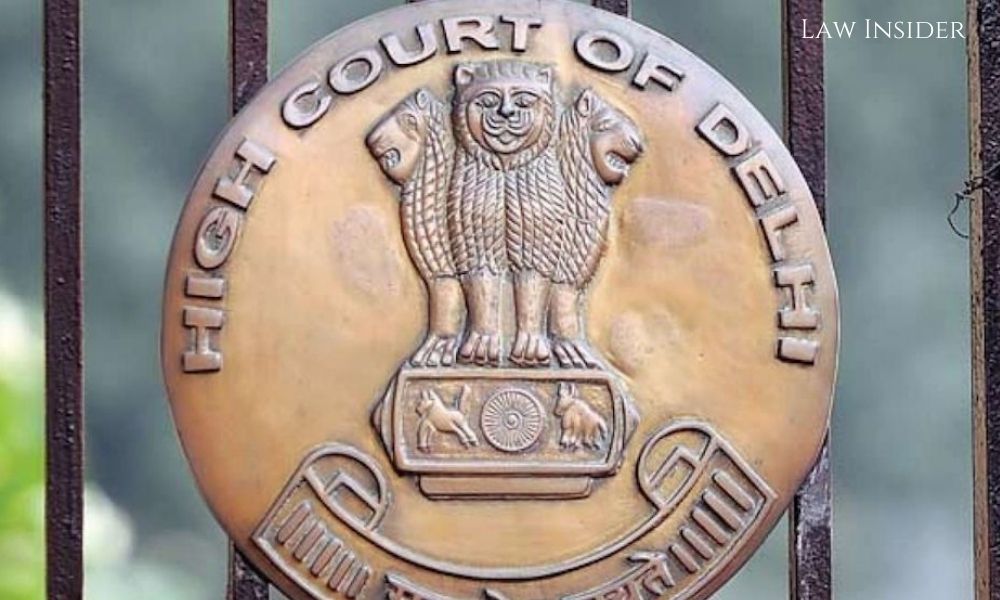Sakina Tashrifwala
Published on: 24 November 2022 at 21:05 IST
The Securitization and Reconstruction of Financial Assets and Enforcement of Security Interests Act, 2002 (SARFAESI Act) and arbitration processes can coexist, the Delhi High Court has reaffirmed.
The Single Justice V. Kameswar Rao led bench ruled that even if a party intended to challenge a secured creditor’s action under Section 13 (4) of the SARFAESI Act by filing a petition with the Debt Recovery Tribunal (DRT), that would not prevent the secured creditor from starting arbitration proceedings.
In accordance with the Master Facilities Agreements and Supplementary Agreements signed by the parties, the petitioner, Hero Fincorp. Limited, issued loan facilities to respondent no. 1 Techno Trexim (I) Pvt. Ltd. The loans advanced to respondent number one were also guaranteed by Deeds of Guarantee signed by respondents numbers 2 through 7.
The petitioner triggered the arbitration clause when the respondents failed to pay back the loan balance and then filed a petition with the Delhi High Court under Section 11(5) of the Arbitration and Conciliation Act, 1996 (A&C Act), asking for the appointment of an arbitrator.
Before the High Court, the respondent Techno Trexim stated that the petitioner had already started legal action under the SARFAESI Act to collect the loan amount. Additionally, it claimed that the immovable property that was supposedly mortgaged in the petitioner’s favour had been taken into symbolic ownership by the petitioner.
It further stated that the aforementioned immovable property’s value was more than sufficient to cover the purported outstanding debt asserted by the petitioner.
According to the respondent, it was its intention to contest the petitioner’s decision to file a petition with the Debt Recovery Tribunal (DRT) in accordance with Section 17 of the SARFAESI Act.
Therefore, it argued that the DRT had sole authority to decide all matters pertaining to the purported unpaid debts. Additionally, it stated that any subjects over which DRT has authority are barred from the Civil Court’s jurisdiction under Section 34 of the SARFAESI Act.
The respondent made the argument that the claims of banks and financial institutions covered by the Recovery of Debts and Bankruptcy Act, 1993, are not subject to arbitration because there is a restriction against the waiver of DRT’s jurisdiction by necessary implication. The respondent cited the Apex Court’s ruling in Vidya Droliya versus Durga Trading Corporation (2020).
As a result, the respondents argued that the petitioner’s claim could not be resolved through arbitration and that calling for arbitration could not be used to circumvent the respondents’ legal entitlement to pursue remedies under the SARFAESI Act.
The respondents No. 2 and 4 and the guarantors claimed that the Union Bank of India had filed a petition before the NCLT under the Insolvency and Bankruptcy Code, 2016 (IBC) against them, and that an interim moratorium had been imposed under Section 96 of the IBC. As a result, it asserted, no legal action could be taken against them while the temporary moratorium was in effect.
The Court stated that because Hero Fincorp is a Non-Banking Financial Company (NBFC) and has not received notification from the Central Government in accordance with the RDB Act’s provisions, the petitioner is unable to begin RDB Act proceedings.
As a result, it determined that the Supreme Court’s ruling in Vidya Droliya (2020), which said that claims made by banks and other financial organisations fall under the RDB Act and are not subject to arbitration, was not relevant.
The court noted that the Apex Court had determined in M.D. Frozen Foods Exports Pvt. Ltd. v. Hero Fincorp Ltd. (2017) that the SARFAESI Act’s provisions offer an additional remedy to that offered under the A&C Act. While SARFAESI proceedings are in the nature of enforcement proceedings, the Supreme Court had ruled that arbitration is an adjudicatory process.
Furthermore, it had held that secured creditors could use additional assets in execution against the debtor if the secured assets were insufficient to pay off the debts, following the assessment of the pending unpaid amount by a competent forum.
Therefore, the Supreme Court had established that the two Acts gave secured creditors cumulative rights, and that the SARFAESI actions and arbitration proceedings may coexist.
The Court considered the fact that the DRT’s task under Section 17 of the SARFAESI Act is restricted to determining whether the petitioner’s or secured creditor’s initial course of action complies with Section 13(4) of the SARFAESI Act and nothing else. As a result, it decided that the SARFAESI Act, not the RDB Act, applied to the proceedings.
The bench reached the conclusion that even if the respondent intended to act in accordance with Section 17 of the SARFAESI Act by submitting a petition before the DRT, that would not preclude the petitioner/secured creditor from initiating arbitration procedures.
The Court further stated that the respondent’s argument that the immovable property in the petitioner’s symbolic possession was worth more than enough to pay the petitioner’s purported outstanding claims would not prevent the start of arbitration procedures.
The bench decided that if the petitioner received any compensation through the SARFAESI Act process, the arbitrator should be made aware of this fact. Furthermore, it was decided that there was a chance that the SARFAESI Act process might not be successful in recovering the entire sum that was owed and payable.
Therefore, the Court appointed an arbitrator and referred the borrower/respondent no. 1 and the other corporate guarantors, i.e., respondent no. 5-7, to arbitration while ruling that respondent no. 2 to 4 could not be sent to arbitration due to the temporary moratorium placed in place under IBC.

